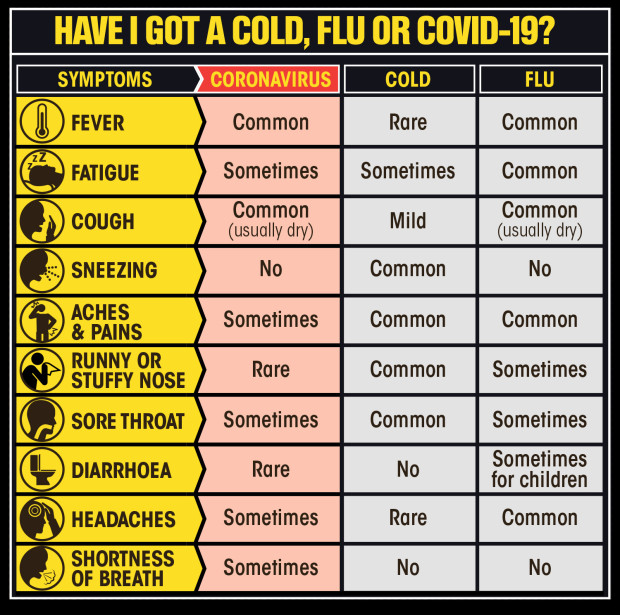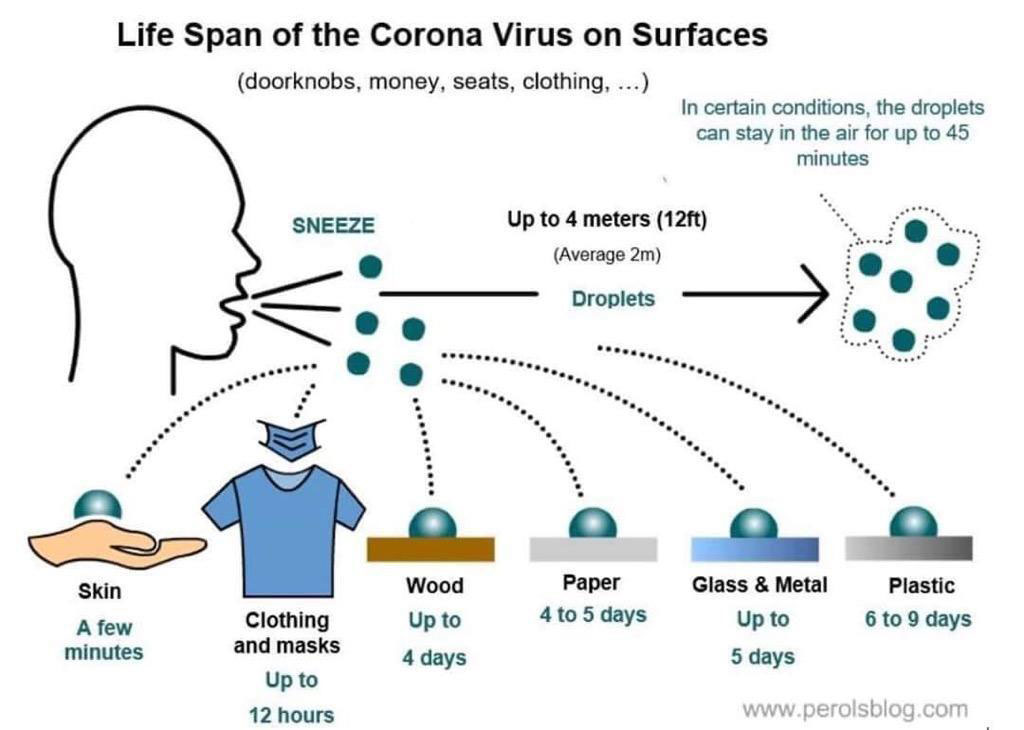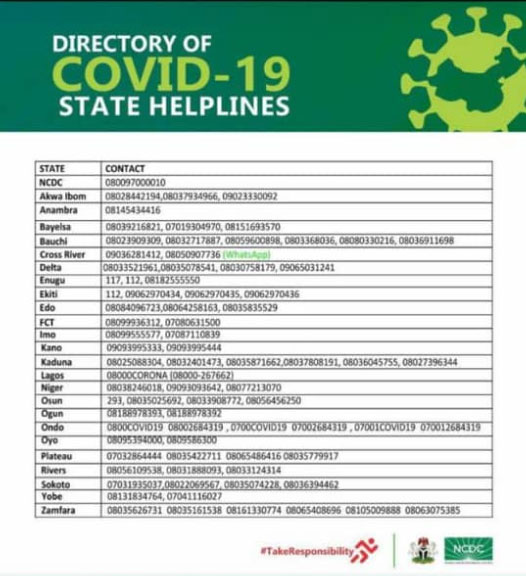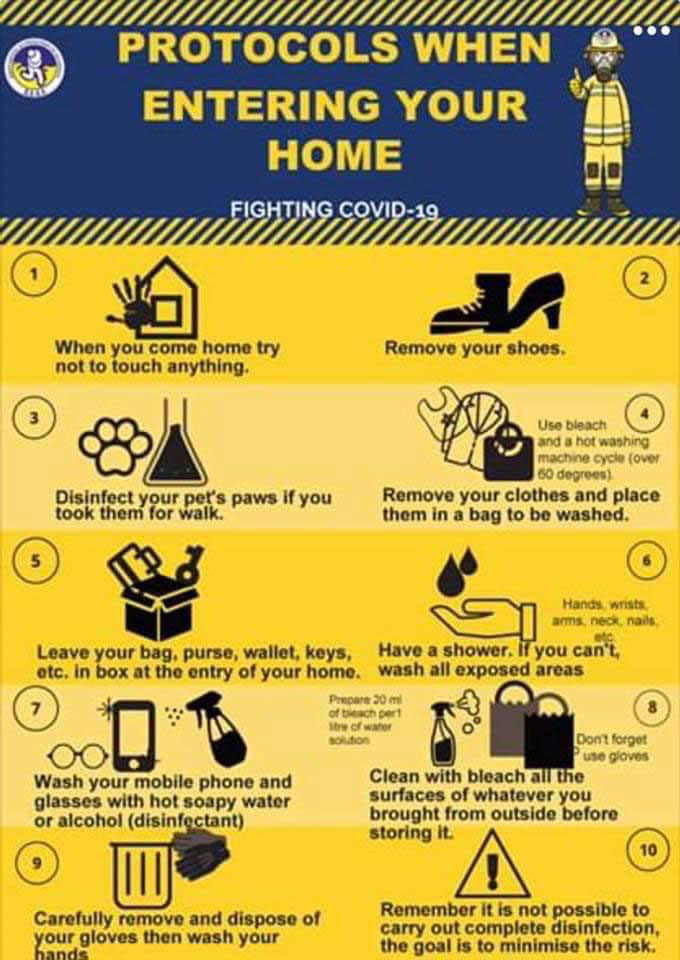What is Coronavirus (COVID-19)
Coronavirus (COVID-19) also known as: SARS-CoV-2, 2019 Novel Coronavirus, nCov is a new illness that can affect your lungs and airways. It's caused by a virus called coronavirus.
Symptoms of coronavirus (COVID-19) are a cough, a high temperature and shortness of breath. Washing your hands often with soap and water can help stop the virus from spreading.
Frequently Asked Questions
We continuously monitor reliable sources and update the FAQs as more is known about COVID-19, how it spreads, how it is affecting people worldwide and what precautions to take.
-
What are the symptoms of COVID-19?
The most common symptoms of COVID-19 are fever, fatigue, shortness of breath, chest pain and dry cough. It can be very similar to the flu, but the cough and shortness of breath are more prominent. There have been reports of patients having red eyes. These symptoms usually start mild and develop gradually. According to the World Health Organization (WHO), the disease is mild in more than 80 percent of cases.
Some 14 percent develop severe disease, including pneumonia and difficulty breathing, while about 5 percent have critical disease, including respiratory failure, septic shock and multiple organ failure.
-
What can a person do to avoid getting sick?
- To reduce the likelihood of getting coronavirus, wash your hands with soap as often as you can, use an alcohol-based hand sanitizer whenever you —they have found the coronavirus does die in the presence of an alcohol-based hand sanitizer, so that’s a good thing to keep on your person at all times, especially if you use a train or a bus and you don’t really have access to washing your hands.
- When you sneeze, sneeze into your arm so you’re not spreading droplets out into the atmosphere, and if someone sneezes or coughs around you, try to cover your nose or walk away to avoid not breathing in anything that they just expelled.
- Avoid crowds and maintain at least 2 metres (6 feet) distance between yourself and anyone even if they are not coughing or sneezing.
- Stay home if you are not feeling well. If you have a fever, cough and difficulty breathing, seek medical attention. Follow the directions of doctor or your local health authority.
-
Where can I find reliable information about the coronavirus?
-
Are there any medicines or therapies that can prevent or cure COVID-19?
To date, there is no vaccine or specific antiviral medicine to prevent or treat COVID-2019. There are several ongoing clinical trials of western and traditional medicines but self-medication with any medicines is not recommended, including antibiotics, as a prevention or cure for COVID-19.
Some western, traditional or home remedies may provide comfort and alleviate symptoms of COVID-19 and those affected should receive care to relieve the symptoms. People with serious illness should be hospitalized. Most patients recover thanks to supportive care.
-
How does coronavirus spread?
The virus mainly spreads from person to person through respiratory droplets when an infected person speaks, coughs or exhales. It can also be transmitted when people touch contaminated surfaces
-
Can you get coronavirus through food?
In general, because of the poor ability of the virus to survive on food surfaces, there is likely very low risk of spread from food products or packaging that are shipped over a period of days or weeks at ambient (room), refrigerated, or frozen temperatures
-
What kills the Coronavirus?
Soap is very effective at killing the virus. Also, most household disinfectants like Dettol, Lysol, Clorox, kill coronavirus immediately. Coronavirus dies in room temperature within 48 hours. Carpeting is protective to the virus and the virus is able to survive in carpeting for at least 7 weeks.
-
Who should be tested for the coronavirus disease?
A doctor can determine if you have signs and symptoms of COVID-19 and whether you should be tested.
In the early stages of infection, it is possible the virus will not be detected.
For COVID-19, a negative test result for a sample collected while a person has symptoms likely means that the COVID-19 virus is not causing their current illness.
-
Where can I get tested? (Nigeria, UK, USA)
Nigeria: Call your state's COVID-19 hotline (click for a list) or NCDC on 080-0970-00010. Then stay at home & wait for further instructions. The state team will arrange for sample collection & transportation from your location to the lab. Remain in self-isolation while testing is on
UK: If you believe that you have symptoms, please check online first and call 111 to get advice before leaving your home. To qualify for testing in hospital you will need to be showing at least two symptoms of coronavirus and be in a relatively severe stage before you will be admitted..
USA: Call your state or local health department or a medical provider. You can find a list of COVID-19 drive-thru testing sites at GoodRx
-
Do I have to pay to get tested?
Nigeria: No Payment is required. Contact your hotlines in your state of residence first. If you are unable to reach your state, please contact NCDC on 080-0970-00010.
UK: No Payment is required. contact your physician.
USA: No Payment is required.




